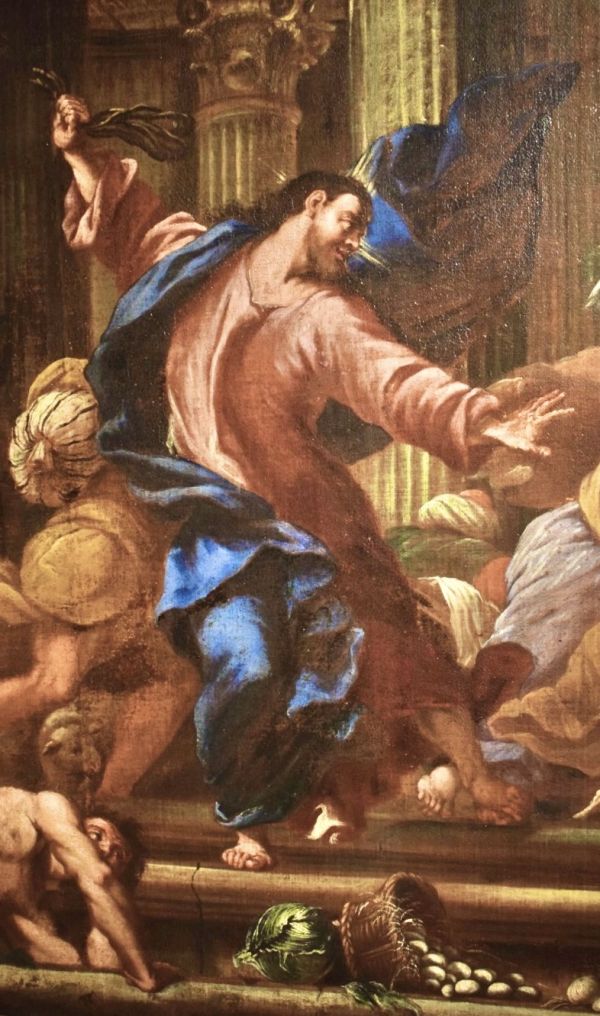«Lateran/ to mortal things went above»
(Jn 2:13-22)
Where to worship the Most High?
Already the cosmos is like a great cathedral, wich weaves divine praises; then surely both the heights and the temples have had a historical sense.
But now Christ is the place where woman and man meet God, the centre of irruption and deployment of the Father’s Love, in the cosmos.
The Lord willingly comes, to merge with the life of the believer and to expand his abilities, qualitative resources, world of relationships.
The Eternal lives and acts in the Friend who - even unconsciously - accepts his proposals.
Thus, even if the heavens do not contain Him, the Lord deigns and delights to be among us and in us.
The great ancient Sovereign was relegated to the Temple, and in the events of everyday life one forgot about Him. Now we are the real and living Sanctuaries.
So, even if the crowds of tourists wander around to admire the art, the Basilicas are a sign, not reality.
We are the ‘churches’ outside the churches, where the Source of being that ‘reveals itself’ dwells and we must make others encounter it.
Effective sign and anticipation of a more human cosmos. In each the Face of Christ.
Only in this sense «Lateran/ to mortal things went upstairs» [Dante, Paradise 31, 30-35].
«Easter was near»: time of liberation from slavery - from the merchants who had seized the God of Exodus.
The people believed that they were emancipated by the acquisition of the ‘promised land’, and that they practiced a welcome cult.
In reality it was still a slave to a pagan image of the Almighty.
In fact, the Temple complex consisted of a series of circuits that gradually selected visitors.
Jesus wants to dismantle the barriers that prevent us from approaching God; all prejudices and dividing walls.
The great Novelty is that in Him everyone has access to the Father.
He proposes communion as a conviviality of differences, not synergy with different purpose.
Then, the fear instilled by the old religiosity had transformed the great places of worship of the ancient East into banks.
And the mixture of prayer and money is really unbearable.
When economic interests take over, the consequences for weightless people [and civilisation itself] are devastating.
Thus, the Master knocks us out of the false image of God, to recover it within each of us.
In short, we must do away with the palisades - albeit "ideals" - in which gratuitousness and prayer have very little resembling the relationship of the Son with the Father.
All this also pushing us to understand elsewhere, sailing towards impossible territories.
Finally arriving more and more at the density of the Mystery that wants to travel with us.
We’re gonna make a whole different kind of takeovers.
By now the haggling is incompatible with our action of ‘living stones’.
[Dedication of the Lateran Basilica, November 9]












